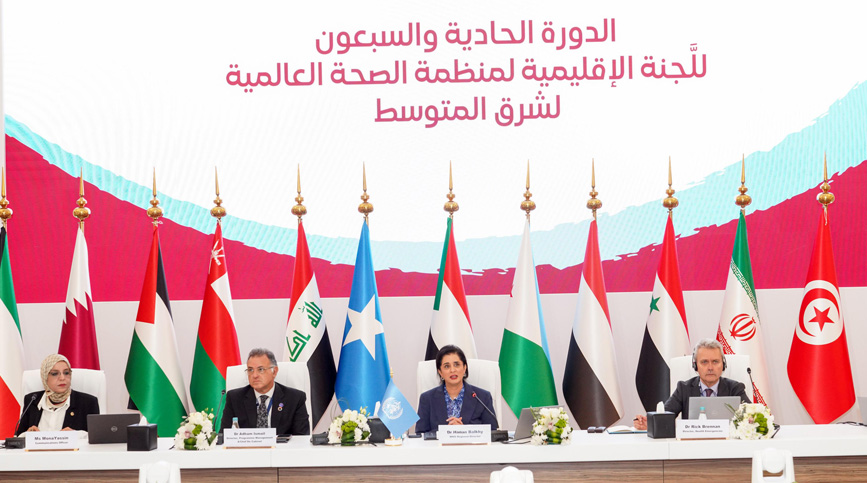
The Seventy-first session of the Regional Committee for the Eastern Mediterranean (RC71) has wrapped up in Qatar, marking a pivotal gathering for regional health leaders. Held from October 14-17, 2024, the event brought together ministers of health, delegates from Member States, partner organizations, and WHO experts to address pressing health issues and adopt actionable resolutions.
Under the theme "Health Beyond Borders," RC71 focused on critical health challenges exacerbated by ongoing regional conflicts, including the 12-month war in Gaza and crises in Lebanon, Sudan, Yemen, and Afghanistan. Despite these significant hurdles, the region has achieved major public health successes, such as the Gulf countries' expansion of healthy cities programmes and Egypt's progress in eliminating hepatitis C and malaria. Jordan has become the first country in the region to eliminate leprosy, while Pakistan has eradicated trachoma.
"We've had exceptionally rich and productive discussions," said Dr. Hanan Balkhy, Regional Director for the Eastern Mediterranean. "This meeting has been a reminder of what we can achieve together despite the immense challenges we face."
Among the key resolutions adopted, RC71 endorsed a Strategic Operational Plan for the next four years and approved three flagship initiatives to accelerate health improvements across the region. A regional action plan was also approved to address mental health and trauma support, particularly for those affected by emergencies, urging Member States to strengthen community-based trauma response services at the primary healthcare level.
Antimicrobial resistance (AMR) was a major focus, with the Eastern Mediterranean identified as having the highest and fastest-rising levels of antibiotic consumption of any WHO region. To address this, RC71 endorsed a regional, people-centred approach to combat AMR, encouraging Member States to adopt a "One Health" strategy involving all relevant stakeholders in combating the rise of drug-resistant infections.
The digitalization of health information systems (HIS) was another priority, as many countries in the region continue to face challenges in this area. The Committee endorsed a new regional strategy to advance the digitalization process, calling on the Regional Director to develop adaptable standards suited to specific national contexts.
The session also addressed immunization, approving a strategic framework for implementing the Immunization Agenda 2030 and strengthening local vaccine production. A framework for improving health laboratory services across the region from 2024 to 2029 was also endorsed.
The next session of the Regional Committee is scheduled to take place in Cairo from October 9-13, 2025. As the region faces unprecedented emergencies, RC71 has laid a foundation for regional cooperation and concrete actions to enhance health outcomes across borders.

.jpg) Equipe de rédaction
Equipe de rédaction